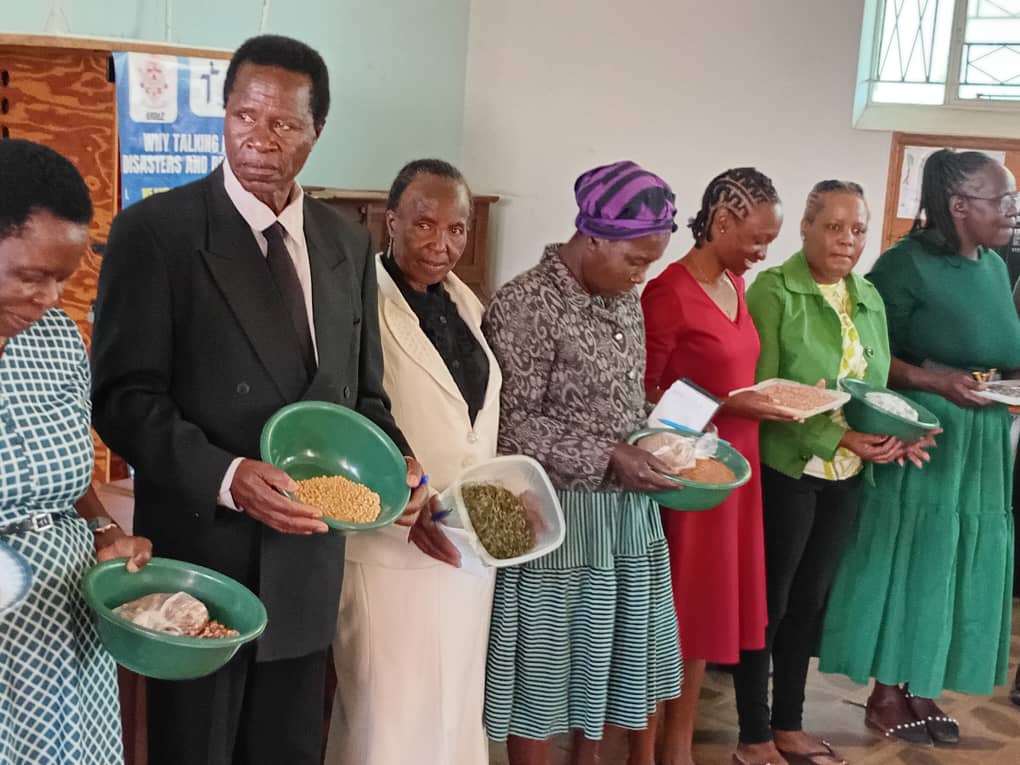Participants display small grains during training in Gweru
Staff writer
The Consumer Council of Zimbabwe (CCZ) held the Green Action Programme in the Midlands city of Gweru where it engaged several stakeholders including the Consumer Action Clubs (CACs).
During the gathering, CCZ, Provincial chairman for Midlands Province, Kepie Manyongo urged consumers to desist from eating junk foods.
“As CCZ we are urging consumers not to consume junk foods such as zapnacks, fresh chips and types of fast prepared foods,”said Manyongo.
“Instead introduce diet such as traditional food such as peanut butter, pumpkin leaves( muboora), madora, roundnuts (nyimo), etc and small grains that are drought resistant and can mature quickly with less rain,” he said.
The Green Action Programme is being spearheaded by CCZ in all provinces where it operates. Green Action week is funded by Consumers International a network of consumers associations globally.
The program equips local CACs with practical skills in seed saving, and the conservation of traditional, climate-resilient crop varieties.In collaboration with like minded Food Alliance institutions, CCZ’s campaign is also running under the theme “Promotion of Indigenous Foods”, celebrating local crops and dishes that are not only highly nutritious but also better adapted to Zimbabwe’s climate and soils.
Through workshops, field demonstrations, and seed fairs, communities are encouraged to build food exchange networks that preserve crop diversity while strengthening collaboration and knowledge-sharing.
The Green Action Week Program offers a solution rooted in local knowledge and self-reliance. It is about power, resilience, and pride in our heritage. By empowering consumers to save their own seeds and grow traditional foods, we are taking back control of our future.”In line with the World Consumer Rights Day theme, “A Just Transition to Sustainable Lifestyles,” the initiative gives consumers a greater role in safeguarding their future.
As the effects of climate change intensify, initiatives like Green Action Week are more vital than ever—offering a model of locally driven, environmentally sound, and economically empowering sustainable livelihoods.
